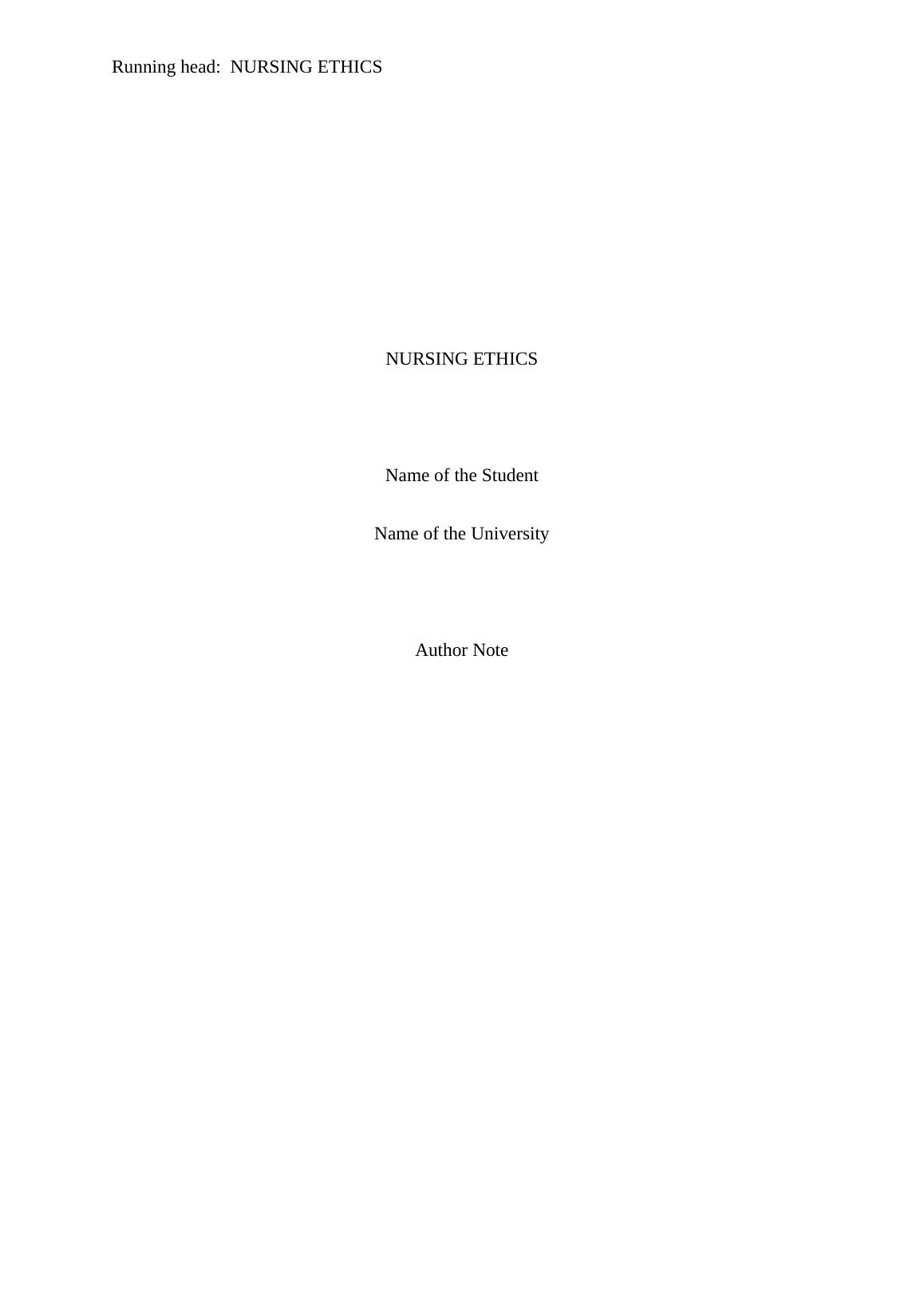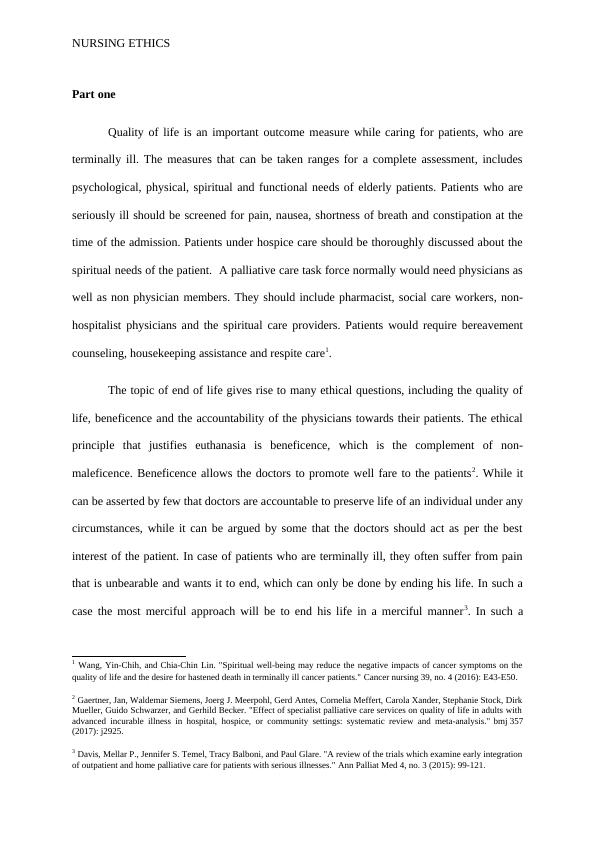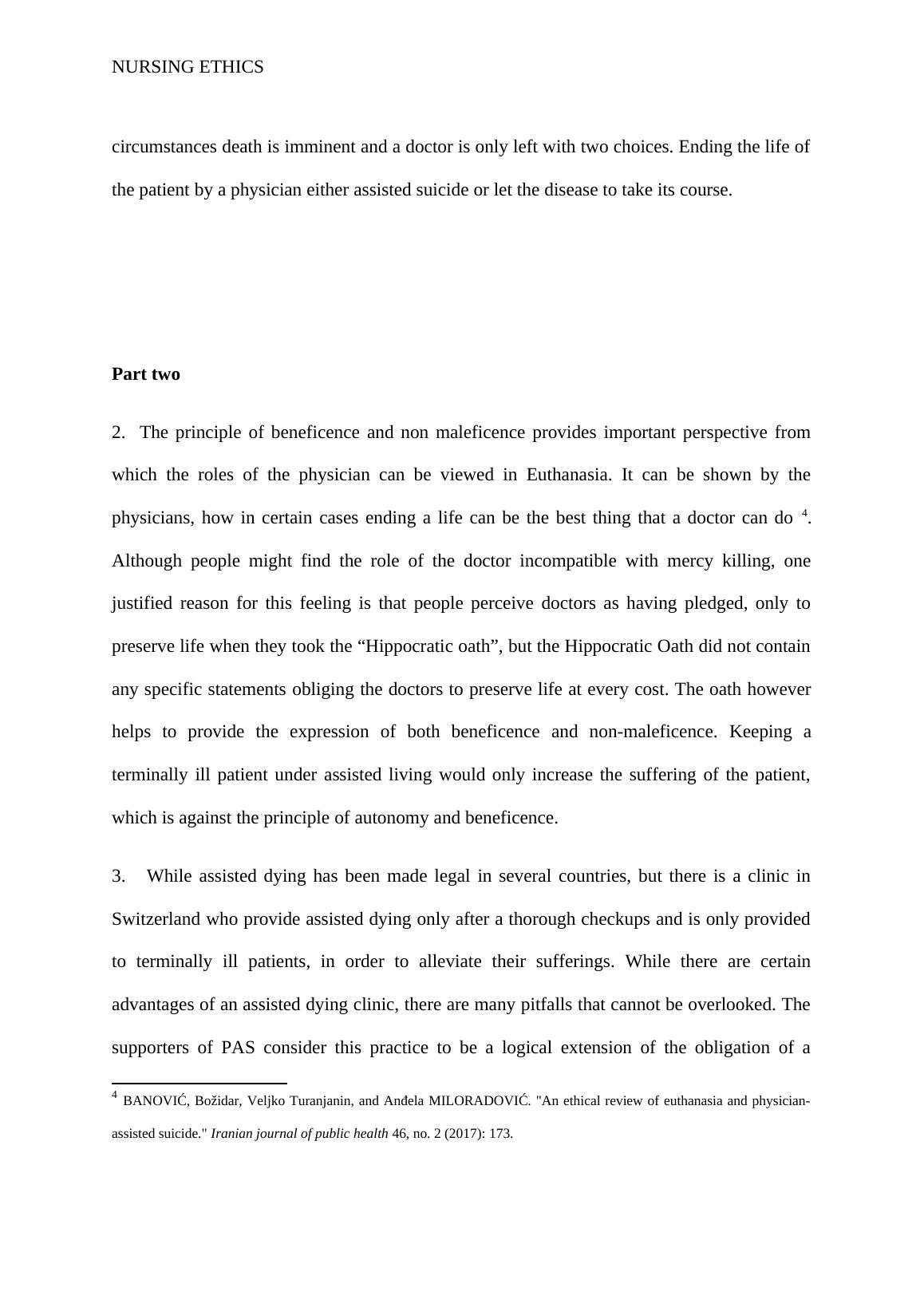Spiritual and functional needs of elderly patient
Setting up a task force to establish standards for assessing quality of life of terminally ill patients and discussing the ethical implications of physician-assisted suicide and environmental ethics.
10 Pages2585 Words20 Views
Added on 2022-08-08
About This Document
.
Spiritual and functional needs of elderly patient
Setting up a task force to establish standards for assessing quality of life of terminally ill patients and discussing the ethical implications of physician-assisted suicide and environmental ethics.
Added on 2022-08-08
ShareRelated Documents
End of preview
Want to access all the pages? Upload your documents or become a member.
(PDF) The basis of right to Self determination
|6
|3740
|86
Ethical Issues Presentation: Mercy Killing
|10
|777
|79
THE ETHICS IN NURSING
|4
|693
|29
Understanding Do Not Resuscitate (DNR) Orders: Legal and Ethical Considerations
|12
|3381
|313
Advanced Care Planning: Ethical Principles and Legal Framework
|6
|1451
|365
Euthanasia: A Comprehensive Overview
|6
|2457
|365



